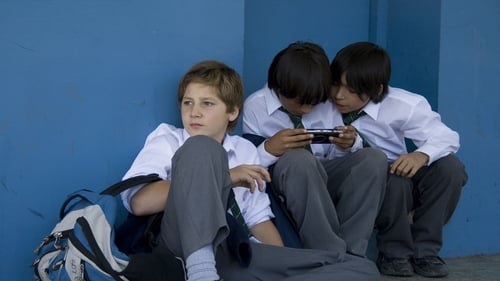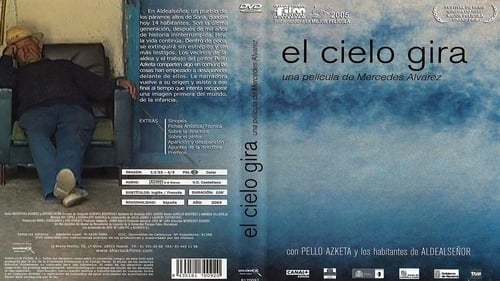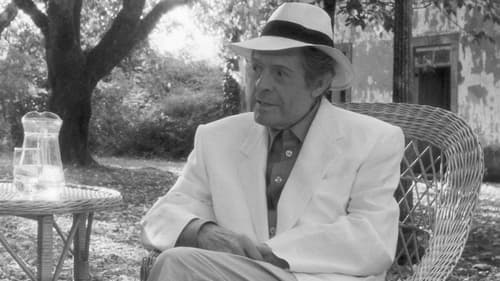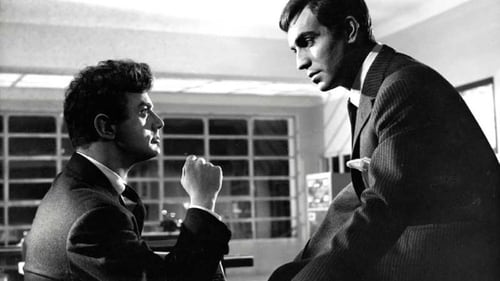One Hundred Children Waiting for a Train (1988)
Genre : Documentary
Runtime : 55M
Director : Ignacio Agüero
Writer : Ignacio Agüero
Synopsis
Tells the story of a group of Chilean children who discover a larger reality and a different world through the cinema. Each Saturday, Alicia Vega transforms the chapel of Lo Hermida into a film screening room as she conducts a workshop for children under the auspices of the Catholic church. The hundred or so children involved had never seen a movie, and in the workshop they see and learn about the cinema: photograms and moving images, projection, camera angles and movement, film genres, and much more. And they watch movies: Chaplin, Disney, Lamorisse's 'The Red Balloon,' the Lumieres' 'The Arrival of the Train to the Station.' Finally, each child designs his own film with drawings. And then, for the first time in most of their lives, the children got to the movies in downtown Santiago.

A short, early travel documentary about Nogent. The film starts with images of trains, buses, and railway tracks, which are juxtaposed to shots of deserted Paris streets, empty factories, and typewriters packed in slipcovers. It is a natural landscape organized by industrial infrastructure and populated by the urban crowds who are swimming, rowing, canoeing, sailing, fishing, or biking.

A farmer accidentally creates a self-procreating iron Pegasus.

She was the nymph who found refuge in the river reeds when the goat-god Pan pursued her. Syrinx is the first film of Ryan Larkin, a young artist from Norman McLaren’s student group. To illustrate the ancient Greek legend of how Pan made his pipes, he employs various charcoal sketches. Accompanying music is Claude Debussy’s Syrinx for solo flute.

A leftist revolutionary or a reformist democrat? A committed Marxist or a constitutionalist politician? An ethical and moral man or, as Richard Nixon called him, a "son of a bitch"? In SALVADOR ALLENDE, acclaimed Chilean filmmaker Patricio Guzmán (The Battle of Chile and Chile, Obstinate Memory) returns to his native country thirty years after the 1973 military coup that overthrew Chile's Popular Unity government to examine the life of its leader, Salvador Allende, both as a politician and a man.

A Chilean family deals with the new values in a quickly changing world.

A story inspired by real events that took place in the port of Valparaiso. Four poor children have been abandoned because their father, who is out of work, steals cattle to feed them and the police have arrested him. The story takes up the children's point of view and is structured in four episodes that describe their inevitable descent into the world of marginality and crime. Faced with life in a brutal way, from their problematic social situation, they head towards a marginality that is difficult to avoid.

Spanish filmmaker Víctor Erice talks about the first movie he probably ever saw, Roy William Neill's The Scarlet Claw (1944), starring Basil Rathbone as Sherlock Holmes. The remembrances of such a formative cinematic experience leads him to recall the dark days after the end of the Spanish Civil War, to confess the many fears stalking children and to reflect on the nature of memory itself.

Cobler Mr Prokouk starts working in an office where there is a lot of paperwork too big for him.

Josephine and Antonio have reached a delicate economic balance after marriage. The salary of lawyer from him, and wins her in the hospital, allows them to survive and fantasize about some freak. The situation is complicated by the news that Josephine is pregnant. Ahead of the debacle that may involve having a "child who eats everything, including food," Josephine teaches the baby still in her womb, higher education courses in order to save some money in schools. Meanwhile, Antonio enters the underworld scene, looking for customers who offer their services as a lawyer.

One year in the life of a tiny village in northern Spain.

Portrayal of a talented, influencial and troubled artist: a filmmaker who fought his own demons and seemed to live his own legend like no other director. Against all odds Sam Peckinpah was able to create a very personal body of work in the studio system of Hollywood and with his powerful directing and editing style changed the way of filmmaking forever. Legendary for his use of slow-motion violence, various scandals and his ongoing problems with sudios and producers, the story of Peckinpah is filled with tragedy, humor, success and defeat.

Two kinds of starfish, the brittle and the feather. The brittle star moves its arms alone, without the aid of suckers. Underneath is a single opening. Stalks move food close to the mouth and move waste away. We see vents, used in reproduction and breathing. We watch the hatched young expelled into the water. The camera shows us brittle stars' intricate patters. We observe feather stars in clusters, like ferns. One turns over slowly; arms have branches with stalks for breathing and gathering microscopic food. Reproductive organs are inside branches. We see eggs develop at 1,400 nature's speed. Larvae emerge, 0.1 mm long. They grow. A feather star takes a walk.

Antonio and Concha, a couple who are constantly fighting about money, win the Christmas Lottery first prize. Concha, who is very bossy, starts making decisions about how they're going to spend it. But Antonio is fed up with her, he just wants to go to Brazil, lay in the sun, and never see her again. So he starts to plan how to get rid of her...

Christian, an art critic, must write a study on the painter René Dimanche in order to understand why he did not produce anything for eight years. He asks his friend Ingrid to help him break through this mystery.

A Jewish family suffers persecution and suffering in the 16th century when they are accused of practicing witchcraft.

In 1996, Marcello Mastroianni talks about life as an actor. It's an anecdotal and philosophical memoir, moving from topic to topic, fully conscious of a man "of a certain age" looking back. He tells stories about Fellini and De Sica's direction, of using irony in performances, of constantly working (an actor tries to find himself in characters). He's diffident about prizes, celebrates Rome and Paris, salutes Naples and its people. He answers the question, why make bad films; recalls his father and grandfather, carpenters, his mother, deaf in her old age, and his brother, a film editor; he's modest about his looks. In repose, time's swift passage holds Mastroianni inward gaze.

Pedro and Julian, two friends entomologists are in love the same woman, Adela, who decides to marry Peter. Julian attends the marriage, but acts against women as her own husband. The passion that unites the two friends, entomology, leads them to conclude a treaty. The woman, however, is not comfortable with the life she has lived and want to abandon them. Discovered that she suffers from the disease, makes men willing to please her in everything, without her knowing the reason for his change of attitude.

Alfredo is a cheerful party animal, son of a wealthy man. Alfredo's brother, a young very focused and mature boy, and their father try unsuccessfully to change the profligate lifestyle of Alfredo to remedy the dissolute life of the latter, which, by all indications, is clearly gay.

Five documentary shorts about various children from the third world.

Biquefarre is a small farm in Aveyron. The changing economics of farming lead Raoul, in late middle age, to decide to sell and move to Toulouse. At least two neighboring farmers want to buy Biquefarre: Lucien and the young Marcel. Behind the scenes, Henri, whose brother is Marcel's father and who is also Lucien's brother-in-law, negotiates with Raoul so that Marcel's father can secretly sweeten Marcel's offer. Will dad and uncle succeed? In the background is the hard daily work of farming: milking cows, harvesting at night, and finding help when a farmer falls ill. Progress brings challenges: polluted water, factory farms, and skyrocketing land prices.








